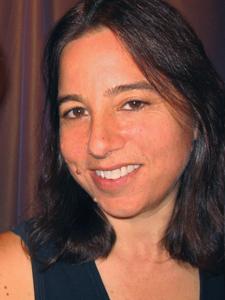As economist George Stigler wisely notes, “In innovation, you have to play a less safe game. If it’s going to be interesting, it’s not predictable that it’ll go well.”
While Stigler was speaking primarily of risk-taking in terms of financial investment, the idea seems even more applicable to creative investment especially in the case of Sarah Schulman’s latest novel, The Child.
Though it has taken nearly a decade to hit bookshelves, The Child is a timely, poignant and unencumbered novel that grapples with the age of consent.
Partly warm-hearted and tender, partly courtroom-clinical and austere, the child in question is a boy named Stew who is 15. His lover is 43.
Their ages have little to do with their attractions to each other. Age doesn’t seem to play a part in the plot at all until the adult is indicted, imprisoned and about to be tried and convicted for pedophilia.
Stew’s life then becomes a series of dramatic surprises and turns that reflect his family’s dysfunction as well as a culture that criminalizes the innocent.
“I remember when everyone I knew was telling coming out stories about having sex with adults. It wasn’t shocking,” says Schulman from San Francisco where she is currently launching the novel. “I used to always hear stories about teenaged boys having their first sexual experiences with adult men. It wasn’t scandalous. It was for the most part pretty positive. At the very least, it was normal.”
She blames the gay marriage movement. “Once the whole Gay Marriage Thing came up,” she says, with grave emphasis on the word thing, “all of those stories just disappeared. You never hear them anymore.”
“With the attention that gay marriage was given in the media, queer presses didn’t want to print anything that would come across as scandalous and mainstream presses continued to boycott queer content in general.”
The most shocking element of The Child is, of course, the story that went on behind the scenes. While Schulman’s novel found support in the queer world, the publishing world wanted nothing to do with it.
In the book’s epilogue, Schulman is curt about the fact that she published a novel every other year for 30 years and has had more than 15 plays produced. Obviously, the reason this one was untouchable had nothing to do with her writerly merit; it was about censorship.
Her voice cracks as she describes the feeling of not being able to find a publisher for this book. “It made me question everything: What is the purpose of my life? Should I write junk like everyone else? It was painful.”
The frustration built as she ran into her readers on the street and they asked about upcoming projects. “I’ve written it,” she would be forced to say, “but no one wants to let you have it.”
She found herself having to email her manuscript to them just so they could read it because she couldn’t bear to deprive them. “I never stopped believing in the book,” she says now.
Schulman forced herself to go through a kind of self-imposed catharsis to rid herself of the sense of rejection that these publishers and editors —or, in her words “censors” —tried to put on her.
“I’ve come to the conclusion that all of that fear is just projection.”
The ‘scandalous’ plotline may have been the reason publishers decided to steer clear but none of her readers have been offended in the slightest.
“Queer readers want stories that reflect how they really live. They don’t want the simplistic propaganda stuff,” she says.
The same can be said of Arsenal Pulp Press who welcomed The Child with open arms.
Meanwhile Carroll and Graf, the publisher that eventually released the hard copy version of The Child, got sold just one month after the book’s first distribution cycle. The upshot is that “somewhere in some warehouse, there are boxes and boxes of The Child waiting to be remaindered or shredded,” says Schulman.
While the path has been tumultuous, Schulman is as resilient as ever. Asked how she manages, she says, “the obstacles are annoying and they’re damaging but they are not more important than the goal itself.”
If anything, this obstacle seems to have made Schulman not only stronger but even more dedicated to nurturing up-and-coming queer writers.
“What I’ve noticed, sadly, is that writers aren’t as open about their queerness anymore. They can’t be. They know they’ll be sidelined. This is true in the classroom as well as in the publishing industry.”
Recently, Schulman, who teaches Creative Writing in the MFA program at NYC’s City University, realized that she held the antidote. “As a teacher of writing, it suddenly occurred to me that I don’t have to be paid to teach. I can just teach.”
And with that, she launched The Satellite Academy, a weekly writing class for queer women who aren’t in writing programs. She runs it out of her apartment.
“I want to put them in a learning situation where they don’t have to defend their content or perspective,” Schulman says.
So far she has eight students and a determined agenda to get more lesbian voices into the literary world.
Given Schulman’s very vocal disdain for the Bush administration, it is impossible to resist asking how she feels about Obama before getting off the phone.
“No matter what the future brings, it’ll be better than the past,” she says, though she quickly follows it up with her hypothesis that Obama is bound to disappoint and that that is okay.
“People have higher expectations than he can meet but that combination creates a momentum. When people have visions that aren’t being met, they start to do things on their own.
“As an individual, you can’t do everything, but you can do quite a bit,” she concludes.

 Why you can trust Xtra
Why you can trust Xtra


